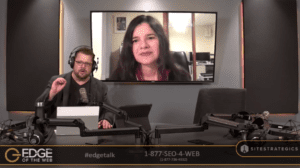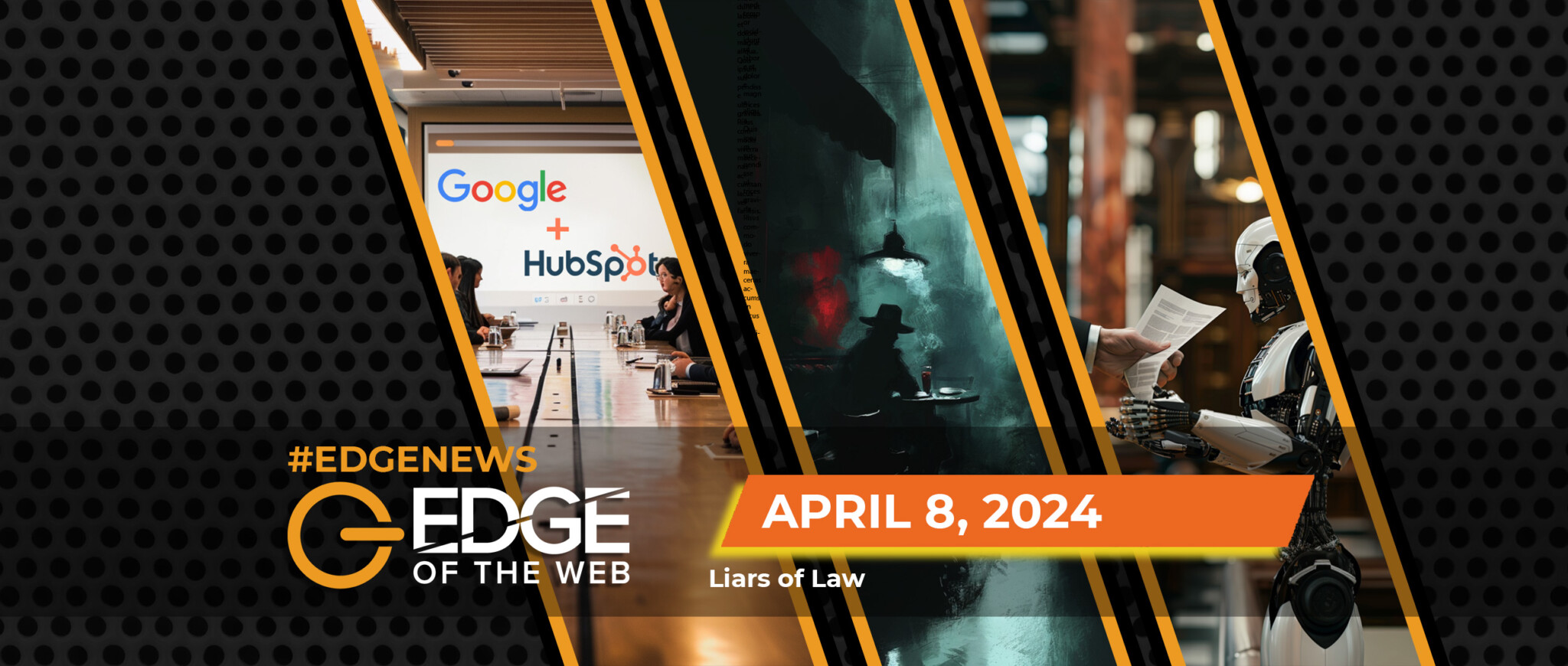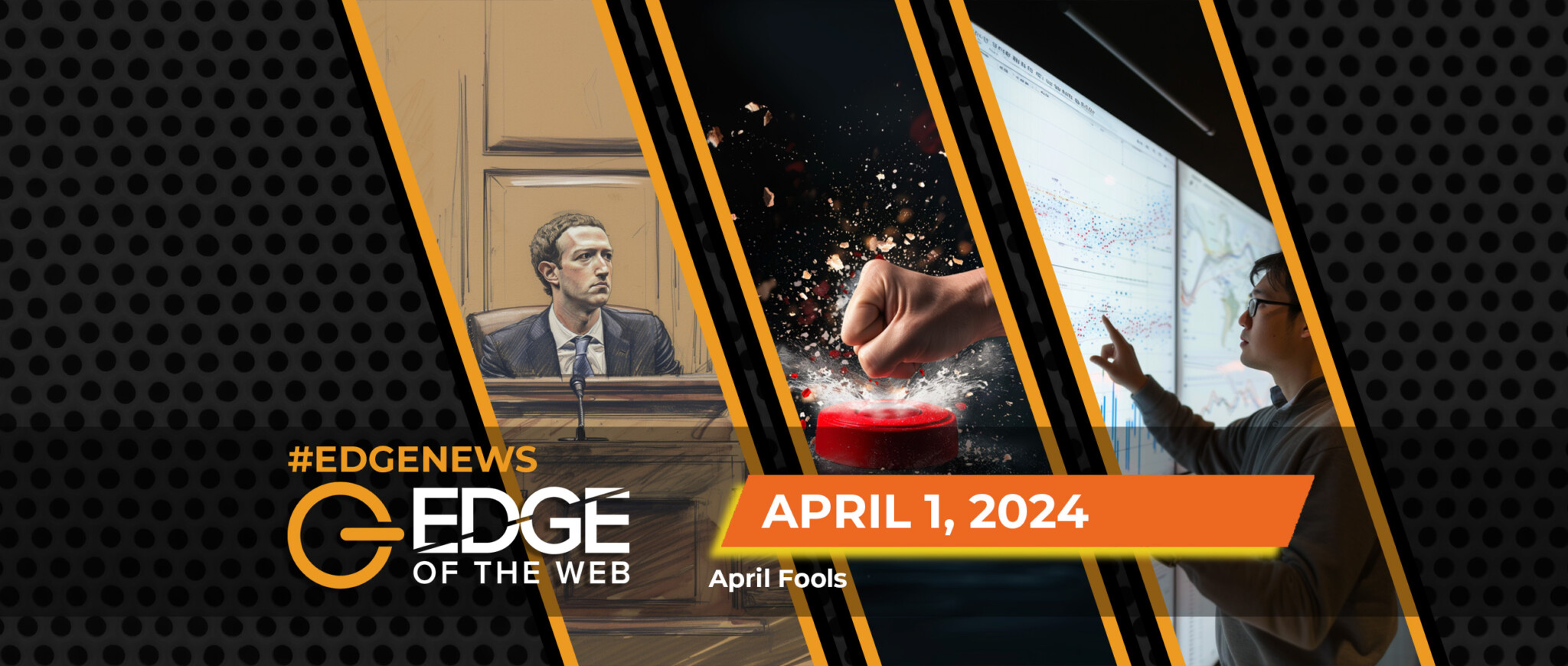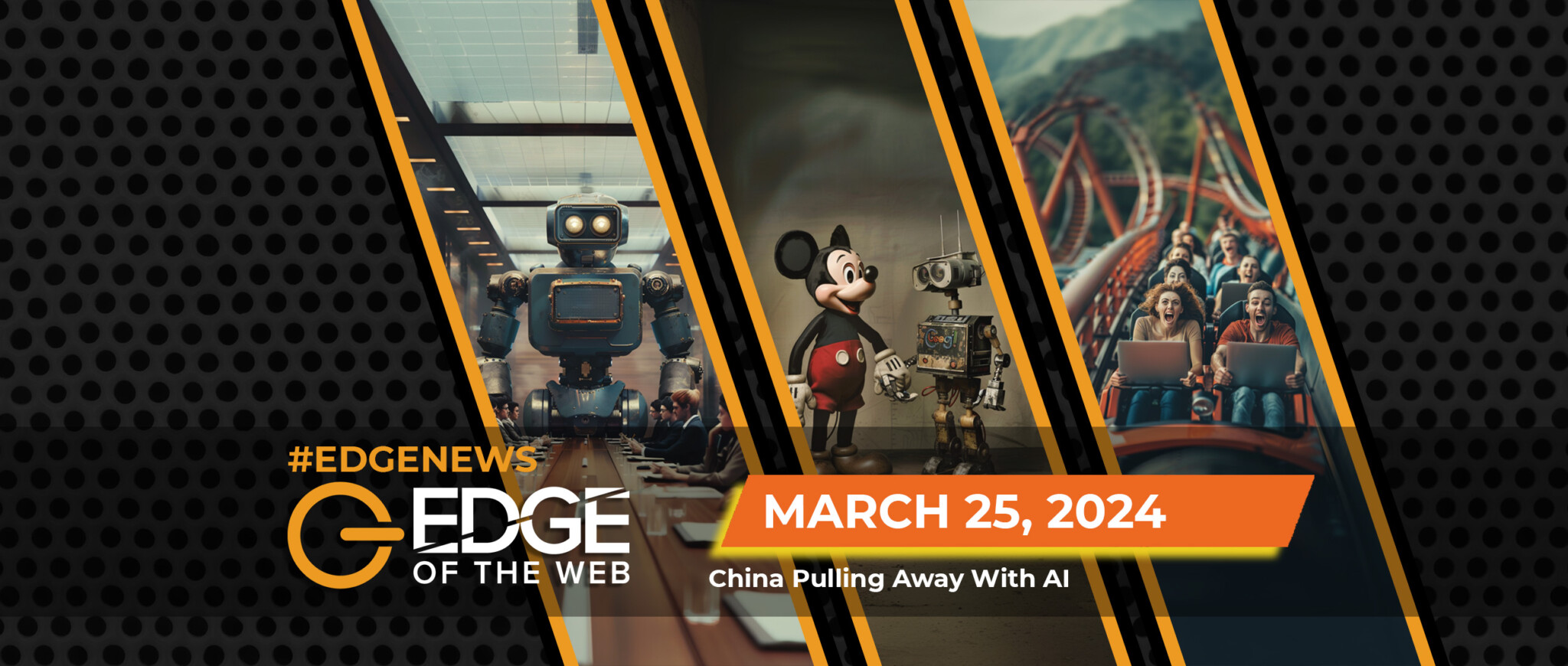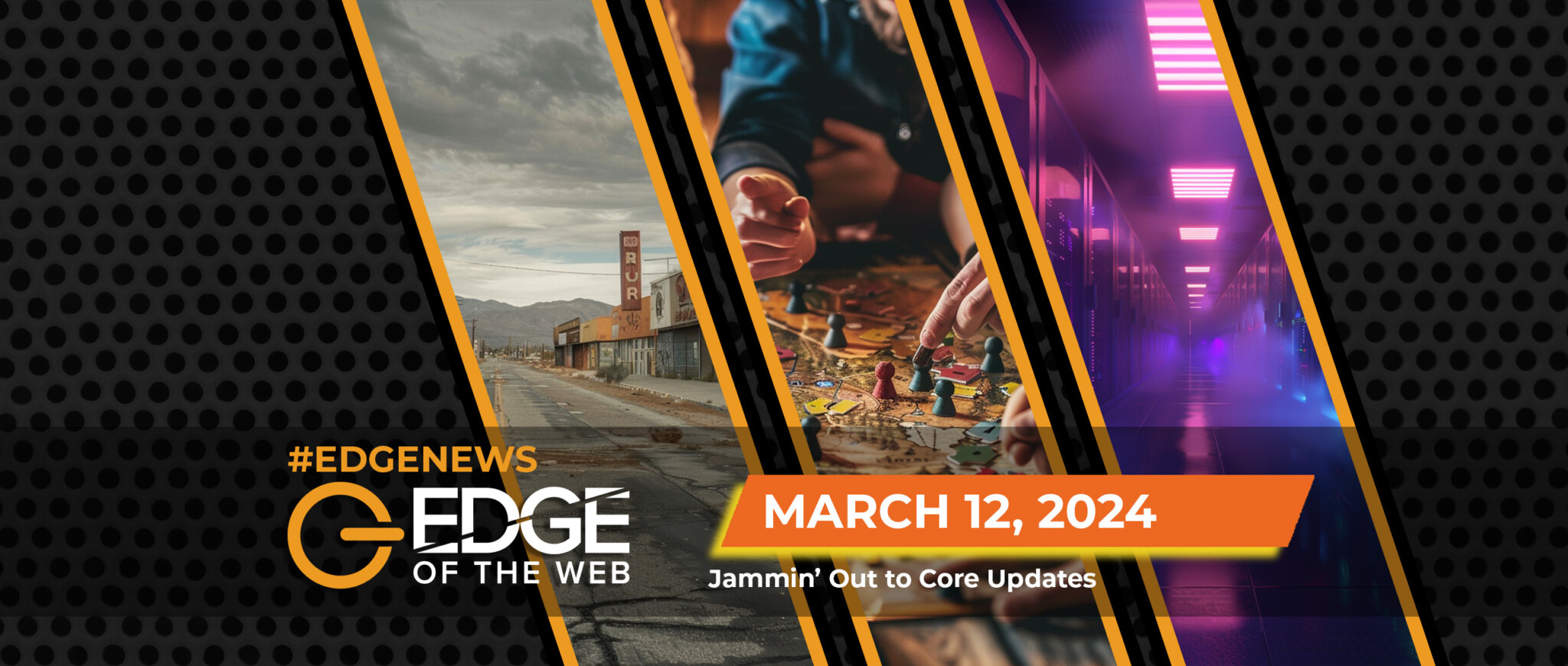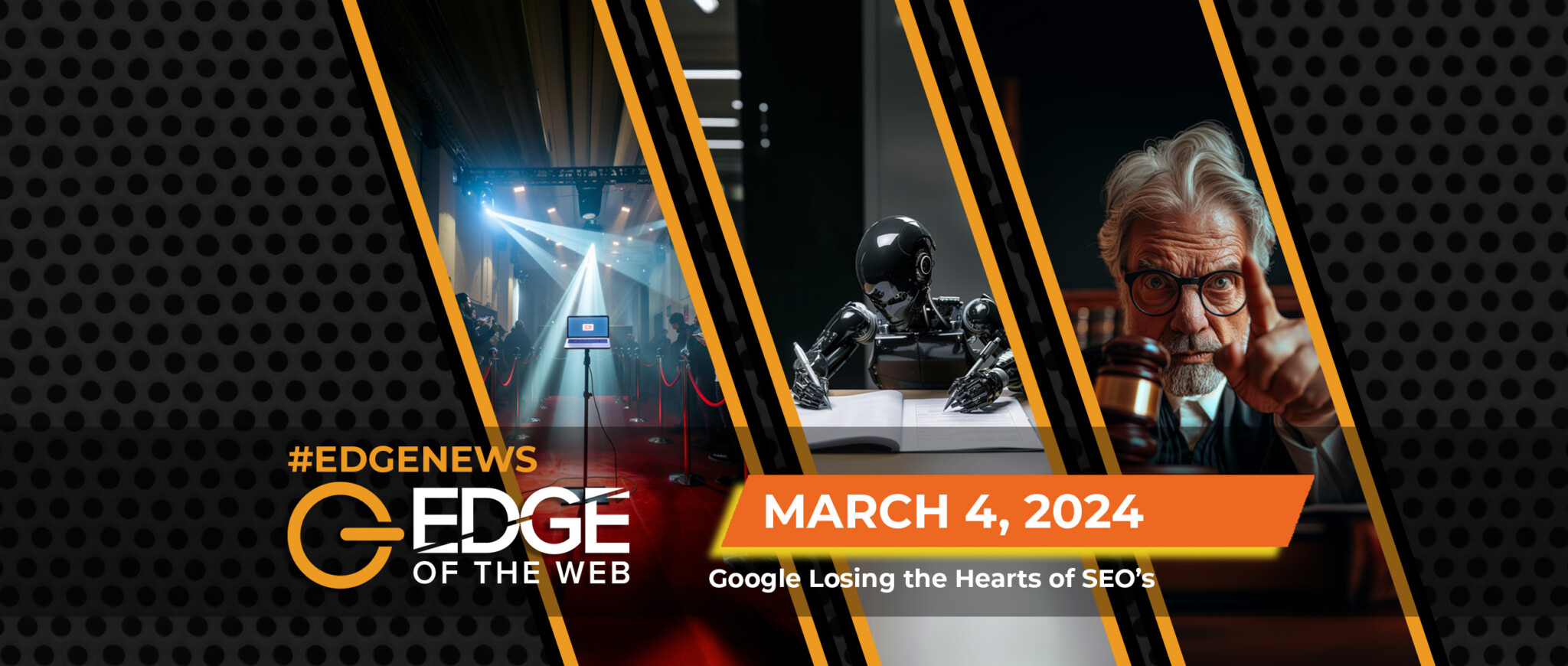Getting caught up on the latest digital marketing headlines is as easy as catching the news roundup segment that kicks off each episode of the award-winning EDGE of the Web podcast. The latest features host Erin Sparks and Creative Studio Producer Jacob Mann along with special guest Aleyda Solis, Founder of Orainti. Here’s the news roundup from Episode 332:
Debunking Bad SEO information: 10 Common E-A-T Myths Busted
From Lily Ray on Search Engine Journal we learn about Debunking Bad SEO information: 10 Common E-A-T Myths Busted. Within the past year, E-A-T has become a major topic of discussion within the SEO industry, particularly as it relates to organic traffic performance changes due to Google’s core algorithm updates beginning on August 1, 2018. Lily went through a 10-point debunking of myths about EAT.
- Erin Sparks: When you’re talking about Google’s emphasis on expertise, authoritativeness, and trust, otherwise known as EAT, you’ll be hard-pressed to find someone more knowledgeable than Lily Ray. Aleyda, did you see her article debunking 10 EAT myths?
- Aleyda Solis: Yes, and Lily is amazing in her knowledge. But besides just countering the misinformation, I also like how she calls people out for just being way to obsessed with some of these topics, which often leads them to make all kinds of false assumptions.
- Erin Sparks: And she breaks it down very well. 1) EAT is not an algorithm, 2) There is no EAT score, 3) EAT is not a direct ranking factor nor is each component of EAT an individual ranking factor, and so on.
- Aleyda Solis: Google is pushing for EAT because it wants to improve the user experience, and everyone wants the information they get from Google to show expertise, authoritativeness, and trust, right? Google wants your content to show EAT because everyone wants content to show EAT.
- Erin Sparks: Right. It’s a conceptual thing. But of course SEOs want to turn it into some kind of easily quantifiable tactic to boost their rankings. But that’s not what it’s about. To go on with her list: 4) Not every site has to worry about EAT, but ones that do include YMYL (your-money-your-life) sites that can directly impact people’s health or financial well-being.
- Aleyda Solis: The more complex or specialized a topic, and the more it might affect a person’s livelihood or well-being, the more EAT comes into play. I have a website about working remotely called Remoters with lots of productivity hacks and so forth. It’s not especially complex or sophisticated, so I do hire writers to produce content for the site. But my SEO content? No way. It’s far too complex to entrust to copywriters.
- Erin Sparks: The last point Lily makes in her article is how EAT is not something you can just plaster all over your site and see immediate results. It’s a much bigger-picture kind of effort to prove your legitimacy within an industry by good standards. It’s not about immediate impacts on rankings.
Google Expands Shopping Ads to Over 50 New Markets, Adds New Features
According to Matt Southern on Search Engine Journal, Google Expands Shopping Ads to Over 50 New Markets, Adds New Features. Google is expanding shopping ads and introducing new features to help advertisers target shoppers worldwide.
- Erin Sparks: Google shopping ads are now available in 95 markets. New features include multi-country feeds to target multiple countries that share the same language, automated product feeds that crawl your website’s structured data and pull out the product information, and they’ve also improved the merchant center experience with more insights, easier navigation, and better workflows.
- Aleyda Solis: This is all good, but I wish they would do that much integration and improvement in other areas that would make SEO work easier.
5 tips and trends from Google Webmaster Conference
On Search Engine Land, Barry Schwartz reports on 5 tips and trends from Google Webmaster Conference. Google held its Google Webmaster Conference event for the first time at its Mountain View, California headquarters on Monday.
- Erin Sparks: Kudos to Barry Schwartz for pulling out great tips to share with SEOs from this event, including structured data, emoji search, deduplication, crawling/rendering, and synonyms. In the past, Google hasn’t been forthcoming about a lot of these different technical aspects.
- Aleyda Solis: Yes, Google has been doing better about communicating what they’re doing to the SEO community. Having events like this one is really good. And they’re getting more feedback and communicating better with SEOs all over the world. The information about structured data is especially important.
Connect with Aleyda Solis and Orainti
Twitter: @aleyda (https://twitter.com/aleyda)
Facebook: @aleydaseotips (https://www.facebook.com/aleydaseotips)
LinkedIn: https://www.linkedin.com/in/aleyda
Crawling Mondays on YouTube: https://www.youtube.com/c/crawlingmondaysbyaleyda
Website: https://www.aleydasolis.com
The EDGE Newsletter has the Digital Marketing News You Can Use
Don’t go searching for digital marketing news –have it delivered directly to your inbox! Go to EDGEofthewebradio.com and you’ll see the subscribe box at the very top of the page. It’s free-of-charge, and we will never use your email for anything except sending you the newsletter. Or sign up by texting the word “EDGETalk” to 22828, but not while driving! Enjoy these digital nuggets of gold from the EDGE – your source for digital marketing news.








